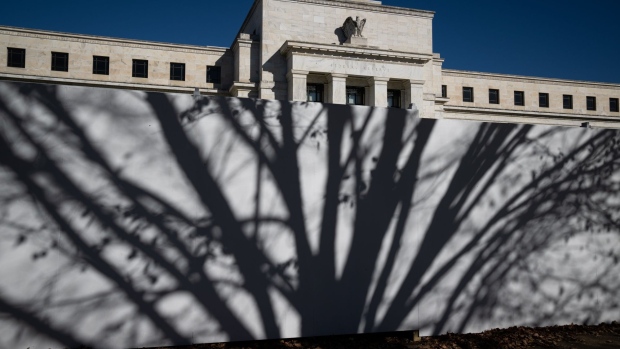Nov 10, 2022
Fed’s Harker Expects Pace of Rate Hikes to Slow in Months Ahead
, Bloomberg News

(Bloomberg) -- Federal Reserve Bank of Philadelphia President Patrick Harker said he expects the central bank to slow the pace of interest-rate hikes in upcoming months as US monetary policy approaches restrictive levels.
“In the upcoming months, in light of the cumulative tightening we have achieved, I expect we will slow the pace of our rate hikes as we approach a sufficiently restrictive stance,” Harker said Thursday in the text of his remarks to the Risk Management Association’s Philadelphia chapter. “But I want to be clear: A rate hike of 50 basis points would still be significant.”
Harker, in his prepared remarks, didn’t reference the most recent consumer price index report. The data released earlier on Thursday showed prices rising 7.7% for year ending October versus 8.2% for September. Minus food and energy, price increases cooled off to a 6.3% pace versus 6.6%.
Fed officials are aggressively raising borrowing costs in an effort to tame inflation running near 40-year highs. The US central bank hiked interest rates by 75 basis points for the fourth straight time last week, bringing the target for the benchmark rate to a range of 3.75% to 4%.
Harker -- who isn’t voting on the rate-setting Federal Open Market Committee this year -- said that since 1983, the FOMC has raised the target 88 times, and 75 of those increases were less than 50 basis points.
Fed Chair Jerome Powell told reporters after last week’s meeting that rates could go higher than officials previously expected, but hinted that policymakers could use smaller moves to get there. Investors are leaning toward the Fed downshifting to a 50 basis-point increase when officials next gather in mid-December.
Harker did not offer an estimate of what rate might be restrictive. When they get to that level, Fed officials will hold it there “for a while” and can tighten further if necessary.
“But we should let the system work itself out,” he said. “And we also need to recognize that this will take time: Inflation is known to shoot up like a rocket and then come down like a feather.”
The Philadelphia Fed chief isn’t forecasting a recession and said growth should slow to 1.5% next year. The unemployment rate will likely rise to 4.5% next year, he said, and then fall to 4% in 2024 with inflation moderating to 2.5% that year.
©2022 Bloomberg L.P.






